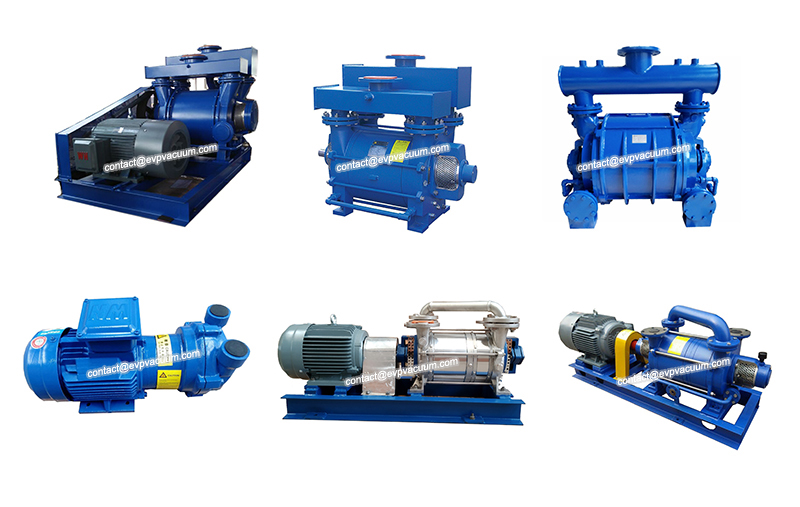How to select vacuum pump in chemical industry
According to data statistics, more than 60% of chemical equipment damage is caused by corrosion. Therefore, when choosing vacuum pump, chemical industry should select materials scientifically. Do not fall into the misunderstanding that stainless steel is “universal material”. Today EVP vacuum pump manufacturers combined with the key points of chemical media to introduce the selection of vacuum pump materials.
1、 Chemical medium is sulfuric acid
Sulfuric acid is an important industrial raw material with a wide range of uses. Sulfuric acid of different concentration and temperature has great difference in corrosion of materials. For concentrated sulfuric acid with concentration above 80% and temperature less than 80 ℃, carbon steel and cast iron have better corrosion resistance, but it is not suitable for sulfuric acid with high speed flow, and it is not suitable for pump valve materials; ordinary stainless steel such as 304 (0Cr18Ni9) and 316 (0Cr18Ni12Mo2Ti) has limited use for sulfuric acid medium. Therefore, high silicon cast iron (difficult to cast and process), high alloy stainless steel (alloy 20) manufacturing, fluoroplastics, fluorine lining (F46), more economical choice are usually used for the pump valve conveying sulfuric acid.
2、 Fluid contains acetic acid
Acetic acid is one of the most corrosive substances in organic acids. Ordinary steel will be severely corroded in all concentrations and temperatures of acetic acid. Stainless steel is an excellent acetic acid resistant material. 316 stainless steel containing molybdenum can also be used for high temperature and dilute acetic acid steam. For high temperature and high concentration acetic acid or containing other corrosive media and other harsh requirements, high alloy stainless steel or fluoroplastic vacuum pump can be selected.

3、 Medium containing hydrochloric acid
Most of the metal materials are not resistant to hydrochloric acid corrosion (including all kinds of stainless steel materials), and the molybdenum containing high silicon iron can only be used for hydrochloric acid below 50 ℃ and 30%. In contrast to metal materials, most non-metallic materials have good corrosion resistance to hydrochloric acid, so lined rubber pump and plastic pump (such as polypropylene, fluoroplastics, etc.) are the best choice for conveying hydrochloric acid.
4、 Most of the general metals in nitric acid are rapidly corroded and destroyed by nitric acid. Stainless steel is the most widely used nitric acid resistant material, which has good corrosion resistance to all concentrations of nitric acid at room temperature. It is worth mentioning that the corrosion resistance of molybdenum containing stainless steel (such as 316, 316L) to nitric acid is not only inferior to that of ordinary stainless steel (such as 304, 321), sometimes even inferior. For high temperature nitric acid, titanium and titanium alloy are usually used.
The materials of vacuum pump discussed in this paper have advantages and disadvantages. No single material is suitable for all applications. Therefore, it is necessary to consult vacuum experts and consider all important parameters in the process, including processing conditions, process gas, integration related to process control, and energy efficiency, safety and stability of vacuum generation in the future. Generally, as long as these factors are taken into account, a suitable vacuum pump can be customized directly according to the requirements.
(The article comes from the Internet. If reprinting is not allowed, please contact our company to delete it.)
